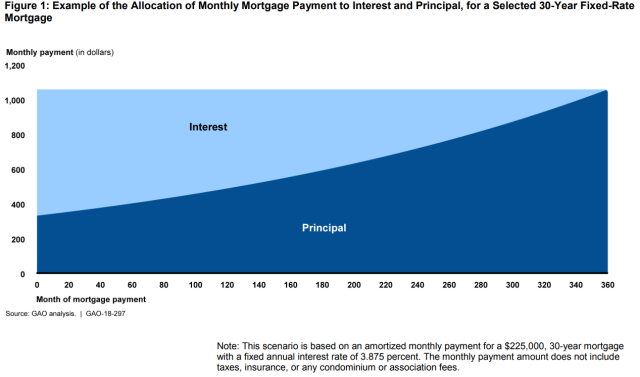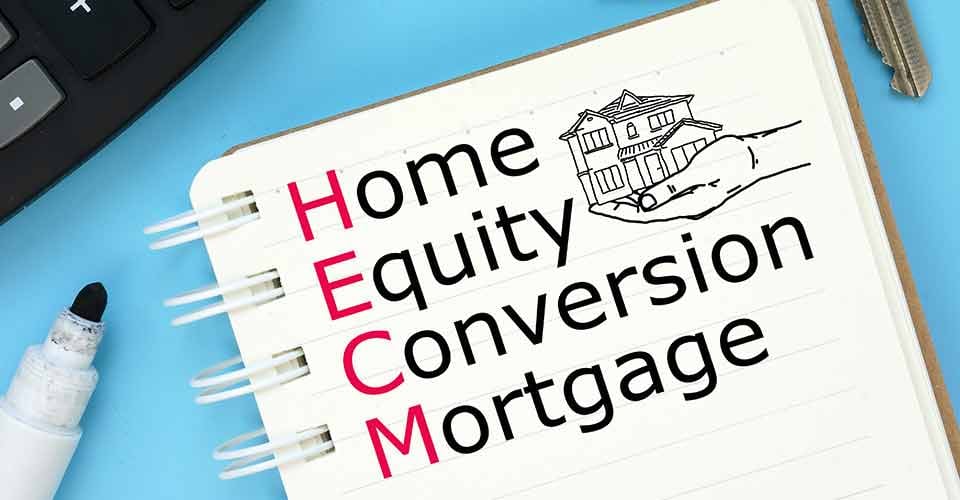What to Consider Before Applying for Equity Release Mortgages
What to Consider Before Applying for Equity Release Mortgages
Blog Article
Exploring the Different Sorts Of Equity Release Mortgages Available Today
Equity Release home mortgages present different choices for home owners aged 55 and over. equity release mortgages. These economic items deal with different demands and preferences, enabling individuals to gain access to funds from their building. From life time home mortgages to common admiration home loans, each type provides distinct benefits. Comprehending these options is vital for making informed decisions. What elements should one take into consideration when picking one of the most appropriate equity Release plan? The details that comply with may shed light on this vital topic
Understanding Equity Release Mortgages
Equity Release home mortgages give homeowners, typically those aged 55 and over, with a way to access the worth locked up in their home without requiring to offer it. This economic option permits individuals to convert a section of their home equity into money, which can be made use of for different objectives, such as home improvements, settling financial debts, or funding retirement.Equity Release can take different types, yet it fundamentally includes loaning against the value of the home while maintaining possession. Property owners can choose to get a round figure or a series of smaller sized settlements, depending on their monetary requirements and preferences.Additionally, the quantity available for Release is influenced by the building's value, the property owner's age, and details lender standards. On the whole, understanding equity Release mortgages is necessary for home owners to make enlightened choices concerning using their home's equity while considering the long-lasting ramifications.
Life time Mortgages
Life time home mortgages represent one of the most popular forms of equity Release. This economic item permits property owners, commonly aged 55 or older, to borrow versus the value of their residential property while maintaining ownership. The funding, which is safeguarded versus the home, accumulates rate of interest in time but does not call for month-to-month settlements. Rather, the funding and accumulated interest are repaid when the homeowner dies or relocates into long-term care.Lifetime home mortgages supply adaptability, as customers can choose to obtain a swelling sum or select a drawdown center, accessing funds as needed. Importantly, several strategies included a no-negative-equity guarantee, making certain that debtors will never ever owe even more than the value of their home. This attribute offers comfort, permitting individuals to appreciate their retired life without the fear of diminishing their estate. Generally, lifetime home mortgages work as a sensible alternative for those seeking financial backing in later life.
Home Reversion Plans

Drawdown Lifetime Mortgages
While several property owners look for means to access their wide range, drawdown life time home mortgages provide a versatile alternative that enables people to Release funds gradually. This sort of equity Release home mortgage allows home owners to borrow against the worth of their property while preserving possession. Unlike typical lifetime mortgages, drawdown strategies allow customers to access a part of their equity upfront and take out added funds as needed, approximately a fixed limit.This function can be particularly beneficial for those who desire to handle their funds carefully, as it lessens interest accumulation by just charging interest on the quantities attracted. In addition, drawdown lifetime mortgages usually come with a "no negative equity guarantee," ensuring that consumers will never owe even more than their home's value. This alternative suits senior citizens that want economic safety and adaptability, permitting them to fulfill unforeseen expenditures or preserve their way of life without needing to sell their residential property.
Boosted Lifetime Mortgages
Improved Life time Mortgages provide unique advantages for qualified home owners looking for to Release equity from their residential properties. Comprehending the eligibility standards is necessary, as it determines that can benefit from these specialized car loans. It is additionally vital to evaluate the potential disadvantages connected with boosted options, making certain an all-round point of view on their usage.
Qualification Requirements Clarified
Comprehending the qualification criteria for Improved Life time Mortgages is vital for possible applicants seeking to access the equity in their homes. Commonly, applicants have to be aged 55 or older, as this age requirement is common in the equity Release market. House owners need to possess a residential or commercial property valued at a minimal threshold, which can differ by lender. Significantly, the residential property must be their primary home and in excellent problem. Lenders typically analyze the property owner's health and wellness standing, as certain health conditions may improve qualification and advantages. In addition, candidates should not have existing substantial financial obligations protected versus the building. Meeting these criteria allows individuals to check out Improved Lifetime Home loans as a feasible alternative for accessing funds connected up in their homes.
Benefits of Improved Home Mortgages
After making clear the eligibility requirements, it ends up being noticeable that Enhanced Lifetime Mortgages offer a number of substantial benefits for homeowners seeking to take advantage of their building equity. Largely, they give accessibility to a bigger loan quantity contrasted to basic lifetime home loans, benefiting those with health and wellness problems or age-related aspects that boost their life span risk. This boosted loaning capability permits house owners to satisfy various economic requirements, such as home improvements or retired life costs. Additionally, these home mortgages commonly include flexible settlement choices, enabling consumers to manage their financial resources better. The no-negative-equity assurance additionally ensures that home owners will certainly never owe even more than their residential or commercial property's worth, offering assurance. In General, Boosted Click Here Lifetime Home loans present a compelling alternative for eligible homeowners looking for financial remedies.
Prospective Downsides Taken Into Consideration
While Improved Life time Home loans offer many benefits, potential downsides require careful consideration. One significant concern is the impact on inheritance; the equity launched reduces the worth of the estate entrusted to recipients. In addition, these mortgages can accumulate significant interest gradually, bring about a substantial debt that may surpass the initial lending amount. There might additionally be constraints on home alterations or rental, restricting homeowners' flexibility. Furthermore, improved items commonly call for details health problems, indicating not all home owners will certainly certify. Managing the costs and charges connected with these home loans can be complex, potentially leading to unexpected prices. Because of this, people need to completely analyze their situation and speak with economic advisors prior to proceeding.
Shared Recognition Home Loans
Shared Recognition Home loans represent a special monetary plan that permits homeowners to accessibility equity while sharing future building worth boosts with the loan provider. This technique supplies prospective advantages such as minimized regular monthly repayments, but it also features downsides that need to be very carefully taken into consideration. Understanding the qualification requirements is essential for those interested in this option.
Concept Overview
Equity Release home mortgages, especially in the form of common admiration home mortgages, supply house owners a distinct economic option that allows them to access funds by leveraging the worth of their residential or commercial property. In this arrangement, a lender provides a lending to the house owner, which is typically paid back via a share of the residential or commercial property's future recognition in worth. This suggests that when the homeowner offers the property or passes away, the lending institution gets a portion of the boosted value, as opposed to simply the initial finance quantity. Shared gratitude home mortgages can be appealing for those seeking to supplement their revenue or finance considerable costs while keeping possession of their home. Nevertheless, the economic implications of shared gratitude need to be thoroughly thought about by prospective debtors.
Disadvantages and benefits
Although shared gratitude home loans can offer considerable financial advantages, they additionally feature remarkable downsides that possible customers ought to consider. These mortgages permit house owners to accessibility equity in their residential properties while sharing a part of any kind of future admiration with the lender. This setup can be valuable throughout times of increasing property values, providing considerable funds without monthly payments. The major drawback is the prospective loss of equity; home owners may finish up with appreciably decreased inheritance for heirs. Furthermore, the intricacy of the terms can result in misconceptions concerning payment responsibilities and the percentage of admiration owed. It is essential for customers to evaluate these variables carefully before dedicating to a common appreciation home loan.

Qualification Demands
What standards must property owners fulfill to get a shared admiration mortgage? Mainly, prospects must be at the very least 55 years old, ensuring they are within the target group for equity Release products. Furthermore, the property needs to be their primary home and typically valued over a defined minimum limit, typically around ? 100,000. Lenders also assess the home owner's economic situations, consisting of income and arrearages, to identify they can manage the home loan sensibly. Importantly, the residential property must be in great condition and devoid of substantial lawful encumbrances. House owners need to additionally have a clear understanding of the terms, consisting of exactly how recognition will certainly be shown the loan provider upon sale or transfer of the building, as this affects overall returns.
Picking the Right Equity Release Alternative

Frequently Asked Questions
What Age Do I Need to Be for Equity Release?
The age demand for equity Release commonly begins at 55 for a lot of plans. However, some companies may supply choices for those aged 60 and above, showing varying terms based upon private situations and lender additional reading plans.
Will Equity Release Influence My Inheritance?
Equity Release can impact inheritance, as the amount borrowed plus passion reduces the estate's worth. Successors might receive much less than prepared for, relying on the residential or commercial property's appreciation and the complete financial debt at the time of passing.
Can I Relocate House With Equity Release?
The concern of moving residence with equity Release arises often. Typically, people can move their equity Release strategy to a brand-new residential property, yet specific terms might use, needing consultation with the loan provider for support.
Exist Costs Connected With Equity Release Mortgages?
Costs connected with equity Release mortgages can consist of arrangement charges, evaluation fees, and lawful prices. Additionally, there may be very early repayment charges, which can impact the total cost and financial ramifications for the consumer.
How Does Equity Release Effect My Tax Obligation Situation?
Equity Release can affect one's tax situation by possibly raising taxed income, as released funds are considered capital. It usually does not incur instant tax obligation obligations, making it vital to seek advice from a monetary advisor for personalized advice.
Final thought
In summary, the selection of equity Release mortgages readily available today uses house owners aged 55 and over numerous pathways to access their residential or commercial property's value - equity release mortgages. Whether opting for a life time home loan, home reversion plan, or various other options, each alternative provides distinct benefits customized to specific economic requirements. Mindful factor to consider and consultation with a financial consultant are necessary to guarantee the chosen equity Release service aligns with economic conditions and personal objectives, eventually assisting in educated decision-making for a safe economic future. Equity Release home mortgages existing different alternatives for house owners aged 55 and over. Equity Release home loans offer home owners, usually those aged 55 and over, with a means to access the value linked up in their property without requiring to sell it. Boosted Life time Home loans use distinctive benefits for eligible house owners looking for to Release equity from their residential or commercial properties. Equity Release home mortgages, especially in the form of shared admiration mortgages, use house owners a special economic service that enables them to accessibility funds by leveraging the value of their property. In recap, the selection of equity Release home loans offered today provides property owners aged 55 and over multiple paths to access their building's worth
Report this page